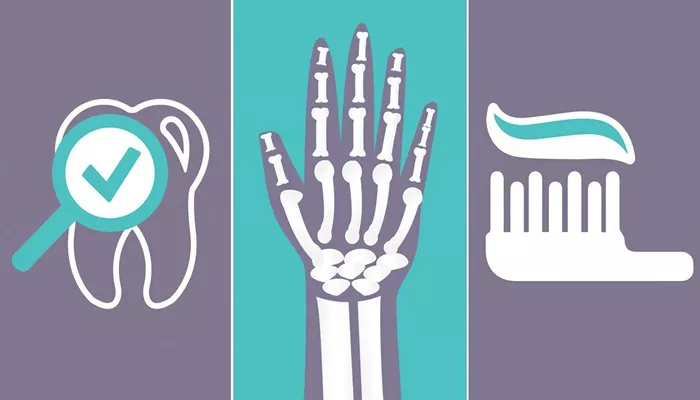Recent research reveals that the bacterium Aggregatibacter actinomycetemcomitans can worsen symptoms of rheumatoid arthritis (RA) in mice by triggering inflammatory responses.
Periodontal disease, which affects the gums and surrounding tissues of the teeth, is one of the most prevalent dental issues worldwide. This condition is primarily caused by the accumulation of bacterial biofilm around the teeth and can lead to tooth loss if not treated effectively.
The impact of periodontal bacteria extends beyond oral health, leading to systemic health issues. Decades of clinical research have established a link between A. actinomycetemcomitans and the onset and progression of rheumatoid arthritis, a serious autoimmune disease that affects the joints. However, the underlying molecular mechanisms of this relationship remain largely unexplored.
How Gum Disease May Worsen Arthritis
A recent study published on August 15, 2024, in the International Journal of Oral Science by a research team from Tokyo Medical and Dental University (TMDU) aimed to clarify this connection through detailed mechanistic studies in an animal model.
The researchers began by confirming whether infection with A. actinomycetemcomitans influenced arthritis in mice. They utilized a collagen antibody-induced arthritis mouse model, which closely mimics several aspects of RA in humans. The study found that infection with this specific bacterium resulted in increased limb swelling, cellular infiltration in the joints, and elevated levels of the inflammatory cytokine interleukin-1b (IL-1b) in the limbs.
Interestingly, these symptoms of worsening RA could be alleviated by injecting clodronate, a chemical that depletes macrophages, a type of immune cell. This finding indicated that macrophages play a significant role in exacerbating RA caused by A.
Actinomycetemcomitans infection. Further investigations revealed that infection with this bacterium increased IL-1b production in macrophages derived from mouse bone marrow. This process activated a multiprotein complex known as the inflammasome, which is crucial for initiating and regulating the body’s inflammatory response to infections.
The researchers also explored the role of caspase-11 by using caspase-11-deficient mice. In these mice, inflammasome activation due to A. actinomycetemcomitans was suppressed, and they exhibited less severe arthritis symptoms. This suggests that caspase-11 plays an important role in this context. “Our research provides new insights into the connection between periodontal pathogenic bacteria and the worsening of arthritis through inflammasome activation,” said Professor Toshihiko Suzuki, one of the study’s lead authors.
The findings may pave the way for new therapeutic strategies to manage RA. “Inhibiting inflammasome activation could reduce inflammation in the joints, leading to improved arthritis symptoms,” noted lead author Dr. Tokuju Okano. He also emphasized that the research could inform treatment strategies for other systemic diseases, such as Alzheimer’s disease, which is also linked to periodontal bacteria.
The Broader Implications of Oral Bacteria
The relationship between gum disease and arthritis has been a subject of interest for many years. Studies have shown that people with RA are more likely to have gum disease, with one study indicating that RA patients are twice as likely to suffer from periodontal issues compared to those without RA. Furthermore, severe periodontal disease has been associated with worse RA symptoms and a lower likelihood of remission.
Research suggests that the bacteria responsible for gum disease can create autoantibodies, which are antibodies that mistakenly target the body’s own proteins. This process, known as citrullination, can lead to the production of antibodies against proteins found in the joint lining, potentially triggering RA.
Moreover, oral bacteria have been found in the synovial fluid of patients with RA and osteoarthritis, indicating that these bacteria can escape from the mouth, enter the bloodstream through damaged gum tissue, and travel to various parts of the body.
Future Directions for Treatment And Prevention
The evidence linking bacteria in the mouth to diseases like RA has led to speculation about future treatments. Some experts suggest that therapies should focus on enhancing the immune response rather than suppressing it. Others advocate for restoring healthy microbial communities through probiotics or fecal therapy. Additionally, treating gum infections may help alleviate various systemic diseases.
The findings from the recent study underscore the importance of maintaining good oral hygiene to prevent periodontal disease, which could have far-reaching effects on overall health. As researchers continue to explore the connections between oral health and systemic diseases, it is clear that addressing gum disease may play a crucial role in managing conditions like rheumatoid arthritis.

